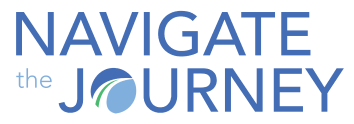The Talent Assessment Tool: The Better Way to Ensure RPRS
In our experience of helping over 100 companies evaluate their team, we have always encouraged them to adopt Jim Collins’ exhortation of ‘getting the right people on the bus, the wrong people off the bus, and the right people in the right seats’.
However, the amount and variety of approaches leaders take to evaluate their employees is vast. Many seem overly complicated and time consuming. Others produce a rating category that isn’t intuitive or doesn’t allow for comparing employees relative ranking or tends towards an either-or assessment which is too reductionistic a view when rating humans. Further, many employee evaluation approaches lack connecting assessment to coaching & development.
When we first came across the Talent Assessment tool we instantly realized that this is the better way to analyze the people on your team, ensuring they are getting timely feedback and the necessary coaching to continually develop.
How to use the Talent Assessment tool
Step #1: Evaluate everyone
· Rate each employee’s productivity on a 0 to 10 scale (best).
· Rate each employee’s fit to your unique culture (typically as defined by your core values, or your gut feel as to how good of a team member they are) on a 0 to 10 scale (best).
Step #2: Add coaching pointers
· Then list out a few coaching pointers for that person that their supervisor will discuss with them in a monthly or quarterly coaching conversation to ensure they are continually developing.
Step #3: Plot your team on the Talent Assessment Chart
Based on each person’s rating in Step #2, you can plot your entire team in the following chart.
Source: Pinnacle: Five Principles that Take Your Business to the Top of the Mountain, Preda & Cleary
Understanding the categories
· “A Players” rate an 8 or above on both productivity & culture fit. If you were a high school basketball coach, your “A Players” are your stating five. In a business, it is critical to continually provide recognition of “A Players’” positive contribution to the business, and coach them to continue to develop, as “A Players” need continual development, or otherwise they may leave for better opportunities elsewhere.
· “A-” or “A-Potential” or “Climbers” rate a 5 or above on both productivity & culture fit. If you were a high school basketball coach, your “A-Potentials” are typically freshman and sophomores you expect will develop to become “A Players” as juniors and seniors. For your business, going through the Talent Assessment exercise quarterly, you can track employees progress over time, and adjust your coaching & development conversations accordingly, to gauge whether your “A-Potential” are moving towards being “A-Players”.
· “B: Campers” rate high on cultural fit, but their productivity is lacking. The Talent Assessment construct can help identify why subpar performance is being tolerated – generally because these employees are great human beings and teammates but are not producing value for the business more than their cost.
· “C: Cavemen” are a complete drag on the business in that they are not productive, and they are not good cultural fits. It is obvious what you need to do with an employee who can’t quickly climb out of the cave.
· “B/C: Cranks” also known as ‘productive jerks’ are often the employees you know something isn’t sitting well with you. They are very productive, yet they are likely such bad teammates that they can be either the reason others don’t like working at your company or they are the reason other people quit. For the greater, long term good of the business you’ve got to come up with a plan to address this category of employee.
A helpful addition to ‘right person, right seat’
Tools that analyze people and introduce a binary line in the sand between a ‘right person’ and a ‘wrong person’ never felt right for us or our clients when we used that approach. The Talent Assessment Tool eliminates that unhelpful binary and reductionistic categorization of human beings into either or categories. There are always a few more nuances to understanding your each individual and your team collectively. We are confident that if you implement the Talent Assessment tool and your business will be better.
About the Author
Tom Barrett is a Leadership Team Coach based in Nashville, and is a Certified Scaling Up Coach™, Certified Pinnacle Business Guide, & former Certified EOS Implementer™. He helps his clients build scalable businesses by clarifying their vision, simplifying their strategy and achieving their goals one quarter at a time.

